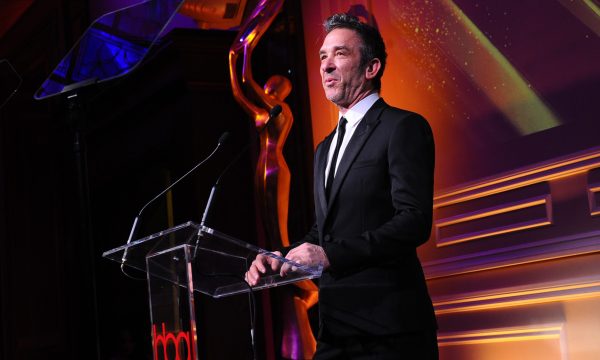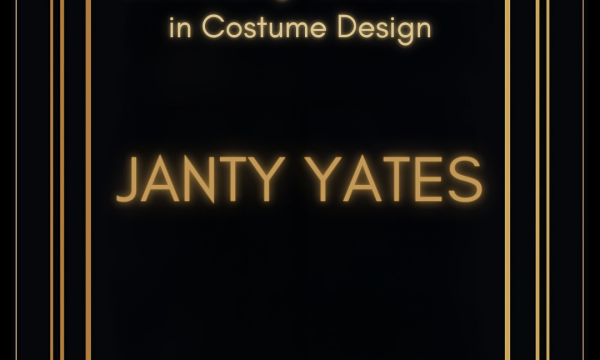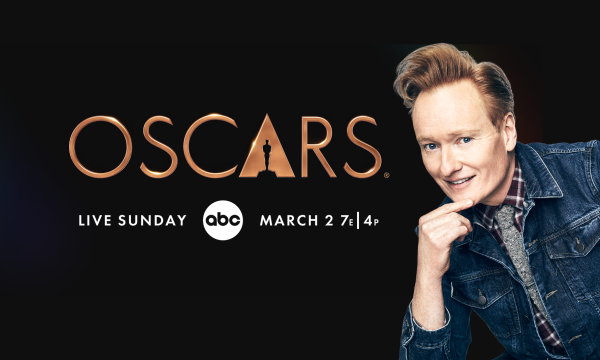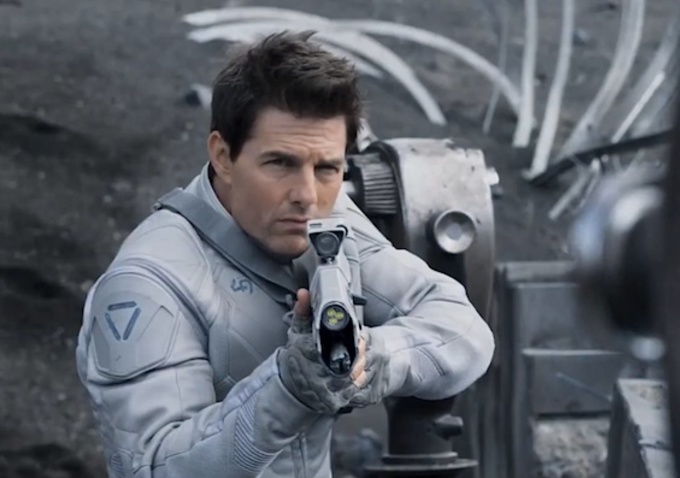 Oblivion tells the story of Jack Harper (Tom Cruise), the last remaining human on Earth, and also the man responsible for repairing the drones that serve as resource harvesters for mankind’s second chance on one of Saturn’s far away moons. But why is Jack helping to harvest Earth’s natural resources? And why does he fly around in a high tech, zero gravity pod racer? Moreover, why exactly did the Scavs — the alien race that invaded (invades?) the Earth in 2017, thus rendering its landscape a radioactive wasteland — even invade Earth in the first place? All of these questions and more remain unanswered in Joseph Kosinski’s (Tron: Legacy) newest futuristic sci-fi epic.
Oblivion tells the story of Jack Harper (Tom Cruise), the last remaining human on Earth, and also the man responsible for repairing the drones that serve as resource harvesters for mankind’s second chance on one of Saturn’s far away moons. But why is Jack helping to harvest Earth’s natural resources? And why does he fly around in a high tech, zero gravity pod racer? Moreover, why exactly did the Scavs — the alien race that invaded (invades?) the Earth in 2017, thus rendering its landscape a radioactive wasteland — even invade Earth in the first place? All of these questions and more remain unanswered in Joseph Kosinski’s (Tron: Legacy) newest futuristic sci-fi epic.
 Before bashing Oblivion’s plot any more — a plot so horribly cliché it could have been taken straight out of a middle schoolers’ Star Wars fan fiction journal — it’s important to get one thing clear: Oblivion looks and sounds fantastic.
The film is scored by “Midnight City” artist M83 and, much like his last feature film; Kosinski uses this techno-bass centric soundtrack in incredibly cinematic ways. It’s a wonderful moment to watch as Cruise’s Harper character hurtles across the barren tundra that was formerly the New York Metropolitan area, with M83’s electronic beats bursting through the movie theater speakers in the background. M83’s music offers an audio experience just as splendid as the visual one displayed on screen.
Before bashing Oblivion’s plot any more — a plot so horribly cliché it could have been taken straight out of a middle schoolers’ Star Wars fan fiction journal — it’s important to get one thing clear: Oblivion looks and sounds fantastic.
The film is scored by “Midnight City” artist M83 and, much like his last feature film; Kosinski uses this techno-bass centric soundtrack in incredibly cinematic ways. It’s a wonderful moment to watch as Cruise’s Harper character hurtles across the barren tundra that was formerly the New York Metropolitan area, with M83’s electronic beats bursting through the movie theater speakers in the background. M83’s music offers an audio experience just as splendid as the visual one displayed on screen.
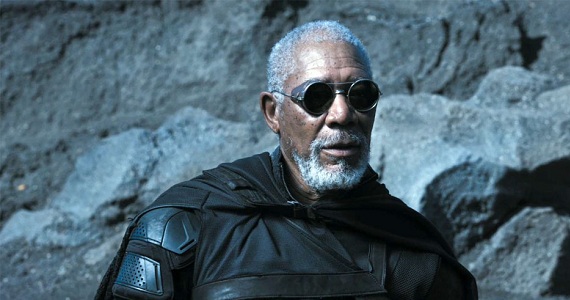 This is not the only scene expertly captured on camera. Straight off of his Oscar winning work on “Life of Pi,” Director of Photography Caudio Miranda commands Earth’s futuristic year 2070 landscape, in the best ways possible. The aerial centric world of Oblivion oozes with long, landscape shots dominated by various geographic landmasses transformed in ways never before seen to us 2013 folk. Oblivion looks, feels, and sounds like a sci-fi gold mine. Unfortunately, the problems begin as soon as Jack hops into his technician aircraft, and descends into the world of 2070 Earth.
This is not the only scene expertly captured on camera. Straight off of his Oscar winning work on “Life of Pi,” Director of Photography Caudio Miranda commands Earth’s futuristic year 2070 landscape, in the best ways possible. The aerial centric world of Oblivion oozes with long, landscape shots dominated by various geographic landmasses transformed in ways never before seen to us 2013 folk. Oblivion looks, feels, and sounds like a sci-fi gold mine. Unfortunately, the problems begin as soon as Jack hops into his technician aircraft, and descends into the world of 2070 Earth.
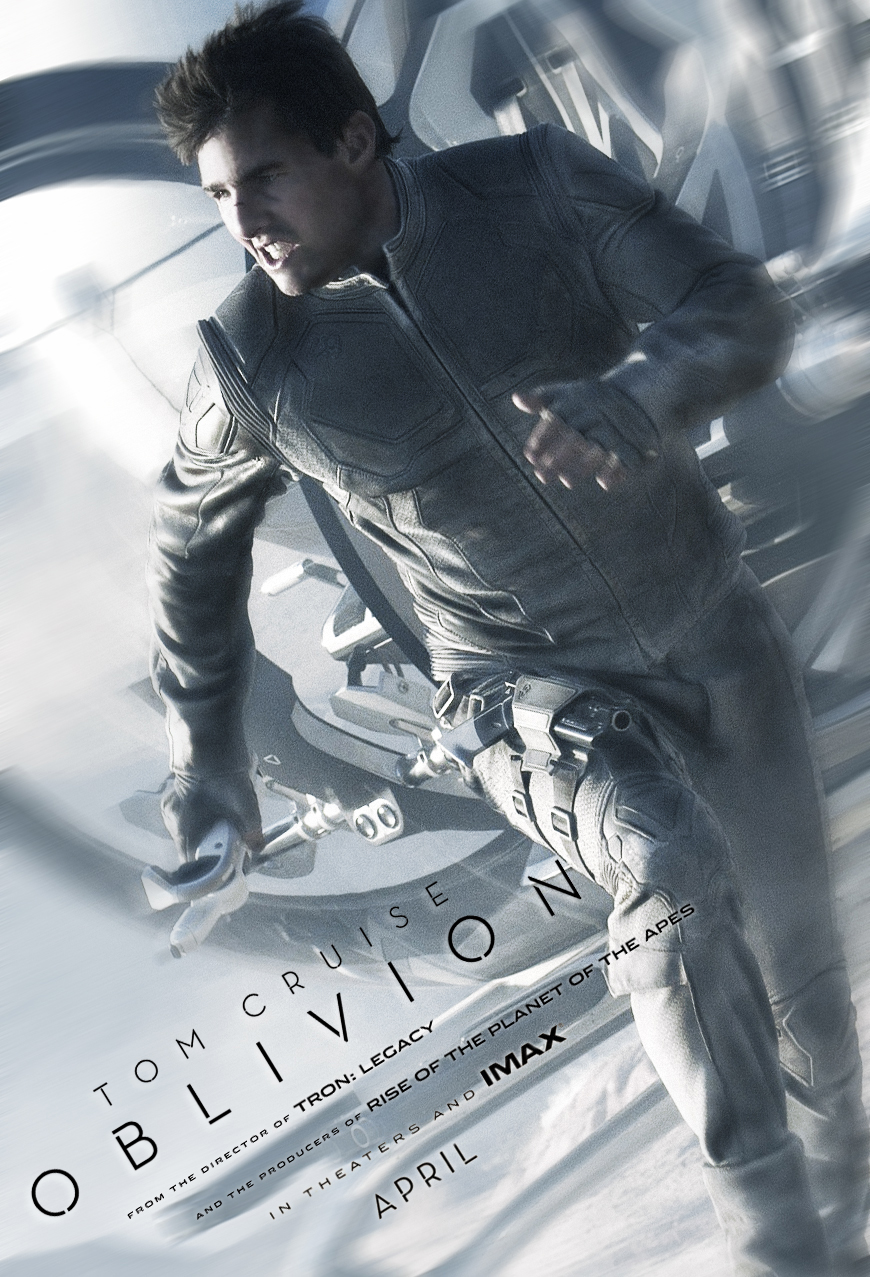 Sadly, sometimes even former Oscar winners mess up. Example A: Michael Arndt. While there are three names credited to Oblivion’s screenplay, it goes without saying that the “Little Miss Sunshine,” “Toy Story 3,” and the upcoming “Star Wars Episode VII,” writer is by far the most successful of the bunch. Where the aforementioned films — and hopefully the new “Star Wars” — are original and creative, Oblivion opts to do the opposite: tell a story teeming with as many sci-fi tropes as possible in a desperate hope that all of the mindless action on screen will effectually tenderize the audience’s brain enough for them to enjoy, disregard, and graciously consume the nonsensical intergalactic cyber-punk jargon displayed on screen. Yes, that rant is a lot to take in, but that intentional run-on sentence has been hand crafted to prove a point: THE AUDIENCE HAS A BRAIN. Risking breaking the spoiler code, it is nonetheless imperative to note that while science fiction fans are — at least speaking for myself — pretty open to learning and seeing new worlds, they do not like being sent to worlds previously treaded on in science fiction films that have already been released — unless we’re talking about sequels. Then it’s okay. “Mad Max,” “Moon,” “Halo,” “Star Wars Episode 1: The Phantom Menace,” “2001: A Space Odyssey,” these are just a few examples of films and video games that Oblivion’s story ripped off. While it is a compliment to film history to pay homage to a movie, it is slanderous to use entire plots and subplots of films from the past. Oblivion definitely falls into the latter category.
Sadly, sometimes even former Oscar winners mess up. Example A: Michael Arndt. While there are three names credited to Oblivion’s screenplay, it goes without saying that the “Little Miss Sunshine,” “Toy Story 3,” and the upcoming “Star Wars Episode VII,” writer is by far the most successful of the bunch. Where the aforementioned films — and hopefully the new “Star Wars” — are original and creative, Oblivion opts to do the opposite: tell a story teeming with as many sci-fi tropes as possible in a desperate hope that all of the mindless action on screen will effectually tenderize the audience’s brain enough for them to enjoy, disregard, and graciously consume the nonsensical intergalactic cyber-punk jargon displayed on screen. Yes, that rant is a lot to take in, but that intentional run-on sentence has been hand crafted to prove a point: THE AUDIENCE HAS A BRAIN. Risking breaking the spoiler code, it is nonetheless imperative to note that while science fiction fans are — at least speaking for myself — pretty open to learning and seeing new worlds, they do not like being sent to worlds previously treaded on in science fiction films that have already been released — unless we’re talking about sequels. Then it’s okay. “Mad Max,” “Moon,” “Halo,” “Star Wars Episode 1: The Phantom Menace,” “2001: A Space Odyssey,” these are just a few examples of films and video games that Oblivion’s story ripped off. While it is a compliment to film history to pay homage to a movie, it is slanderous to use entire plots and subplots of films from the past. Oblivion definitely falls into the latter category.
Oblivion isn’t a bad movie. It features the typical Tom Cruise performance, a slightly less entertaining Olga Kurylenko (Quantum of Solace), and even a cameo by Jamie Lannister actor Nikolaj Coster-Waldau. Oh yeah, and Morgan Freeman’s in it for about three minutes.
All things considered, Oblivion will not go down as being the best sci-fi movie ever made. It probably won’t even be remembered past 2017, but by that time, we’ll be under attack by Scavs anyway.
By David Morris





